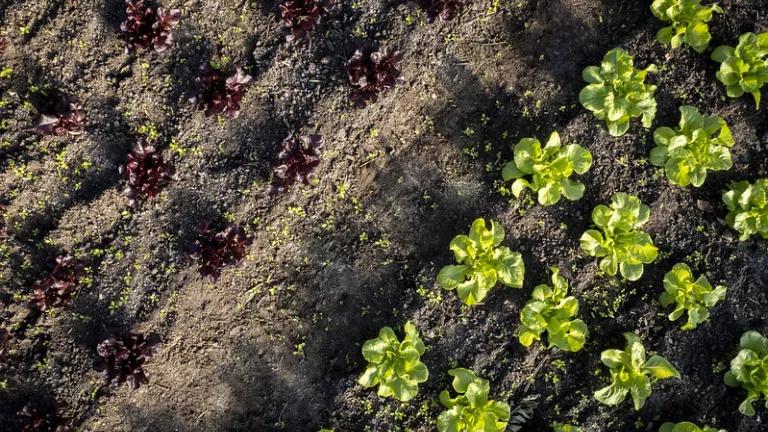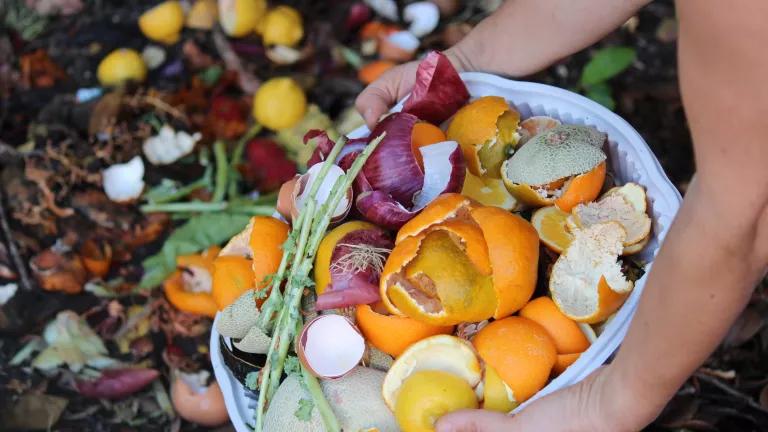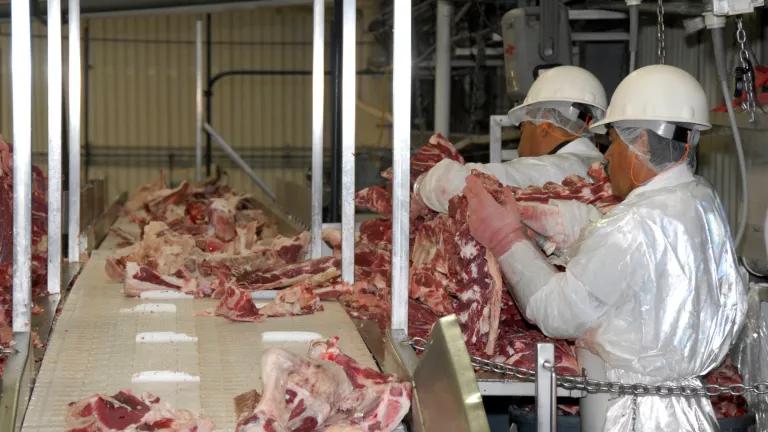
Sang Lee Farms, in Peconic, New York
Every five years, when it passes a new Farm Bill, Congress has a chance to protect our climate, enhance biodiversity, and build healthier and more resilient communities by investing in solutions and shifting toward policies that can work better. With targeted investments and reforms, our current agricultural system has great potential to empower communities left behind and to protect our environment and health. That is why as part of our work to safeguard the Earth and people, we advocate for a Farm Bill that reflects our values. On April 29, 2022, the Senate Agriculture Committee (the policymaking body that usually writes the Farm Bill), held a field hearing in Michigan to explore “Growing Jobs and Economic Opportunity: 2023 Farm Bill Perspectives” and we submitted this written testimony for the record.
NRDC asked Congress to consider a Farm Bill that scales up funding in climate-smart agriculture and forestry and supports the rural clean energy economy. Both investments. through existing programs and new initiatives, will make our farming communities more resilient and will help farmers mitigating the climate and biodiversity challenges that threaten their way of life and our country’s crops. These investments will also help farmers navigate financial, technical, and social challenges that may arise as they innovate, as well as ensure that public investments prioritize the needs of the most underserved populations and maximize benefits to public health, ecosystems, and local economies.
There are many opportunities for policies that invest in a safer, more equitable, and climate-smart future in the Farm Bill:
Rural Jobs and Economic Development: USDA should provide funding to advance rural clean energy deployment, business development and job training particularly for traditionally underserved rural populations. USDA should also support and pilot a program that mimics the Civilian Conservation Corps (CCC) and expand it into private lands making it a Civilian Climate Corps.
Water Infrastructure: The Farm bill, along with other legislative vehicles, present a unique opportunity to further improve drinking water for millions of Americans, including the opportunity to:
- Invest additional resources in fixing our water infrastructure, paying special attention to the affordability and needs of lower-income and disproportionately affected communities.
- Fix lead in our water, including removing all lead service lines, fixing the Lead & Copper Rule, and addressing lead in schools and childcare centers.
Conservation: The 2023 Farm Bill has an opportunity to break significant ground on the pathways for regenerative agriculture. Some of the ways that congress can do that are through:
- Cover Crops. A =regenerative practice that offers a multitude of benefits, cover crops can help farmers maintain productivity in the face of climate change. Congress should expand on this important program and authorize a permanent incentive for farmers who use cover crops and build soil health.
- Soil Health. The 2018 Farm Bill created a visionary program operated by the Natural Resources Conservation Service to test the implementation and adoption of soil health practices. The program should be made permanent and expanded to allow more farmers and more regions to benefit from innovations in advancing soil health.
- Regenerative Agroforestry. USDA needs clearer and more direct authorities in agroforestry, a form of regenerative agriculture rooted in traditional Indigenous land management. Congress should guide USDA to scale these capacities to support farmers and ranchers who wish to invest in regenerative agroforestry.
Food Waste: In the 2023 Farm Bill development process, we urge Senator Stabenow to utilize our newly released report, “Opportunities to Reduce Food Waste in the 2023 Farm Bill.” Key recommendations from the report include:
- Congress should increase funding for grants that help compost organic waste. For example, the Community Compost and Food Waste Reduction Project program, Solid Waste Management Grant (SWMG) program, and the Water and Waste Disposal Loans and Grant program. Congress should continue to prioritize projects in which the implementing agencies prioritize food waste reduction, and consider extending the SWMG program to two years. Congress should also create funding streams along the lines envisioned in the COMPOST Act of 2021 and Zero Food Waste Act of 2021 to support new compost and anaerobic digestion infrastructure.
- Nationally, consumer-facing businesses generate about 28% of food waste. A certification program that focuses on food waste would help consumers connect with businesses practicing good food waste reduction strategies.
- Creating end-markets for compost products will support increased composting, and by giving compost facilities a market to sell compost. Congress should create a crop insurance premium incentive program that pays farmers a per acre bonus for applying compost products to their fields before planting, modeled after the Pandemic Cover Crop Program (PCCP).
Organic / Nutrition: Organic farmers produce healthy food without toxic pesticides and use climate-friendly practices that lower greenhouse gas emissions and boost crop resiliency. Local and regional food producers—including areas where organic farming is highly concentrated—can also provide critical economic stability in rural communities.
- California launched a new Farm to School program in 2021 that is unique because it commits to giving school districts extra resources when they purchase from local growers that are using organic and other climate-smart systems and practices. The federal Farm to School program should adopt California’s approach and offer schools around the country who prioritize climate-smart organic procurement larger grants.
- To encourage more producers to pursue organic agriculture and realize the full potential of its climate, health, biodiversity and other benefits, the next Farm Bill also needs to continue to prioritize well-funded transition programs for organic farmers.
- Congress should increase funding for existing organic programs. These include the Organic Agriculture Research and Extension Initiative (OREI), the Organic Certification Cost Share Program (OCCSP), Organic Transitions Program (ORG), and others like the Sustainable Agriculture Research and Education (SARE) program that serve the needs of both organic and regenerative producers.
Conclusion
Our current food system leaves farms, rural America, farmers and ranchers vulnerable to massive losses related to climate change and ecosystem collapse. With targeted investments, and policy changes we can address the health of our air, water and food, the health of food workers and the public. Congress should make these investments to lift up communities and make our food system part of the solution.




